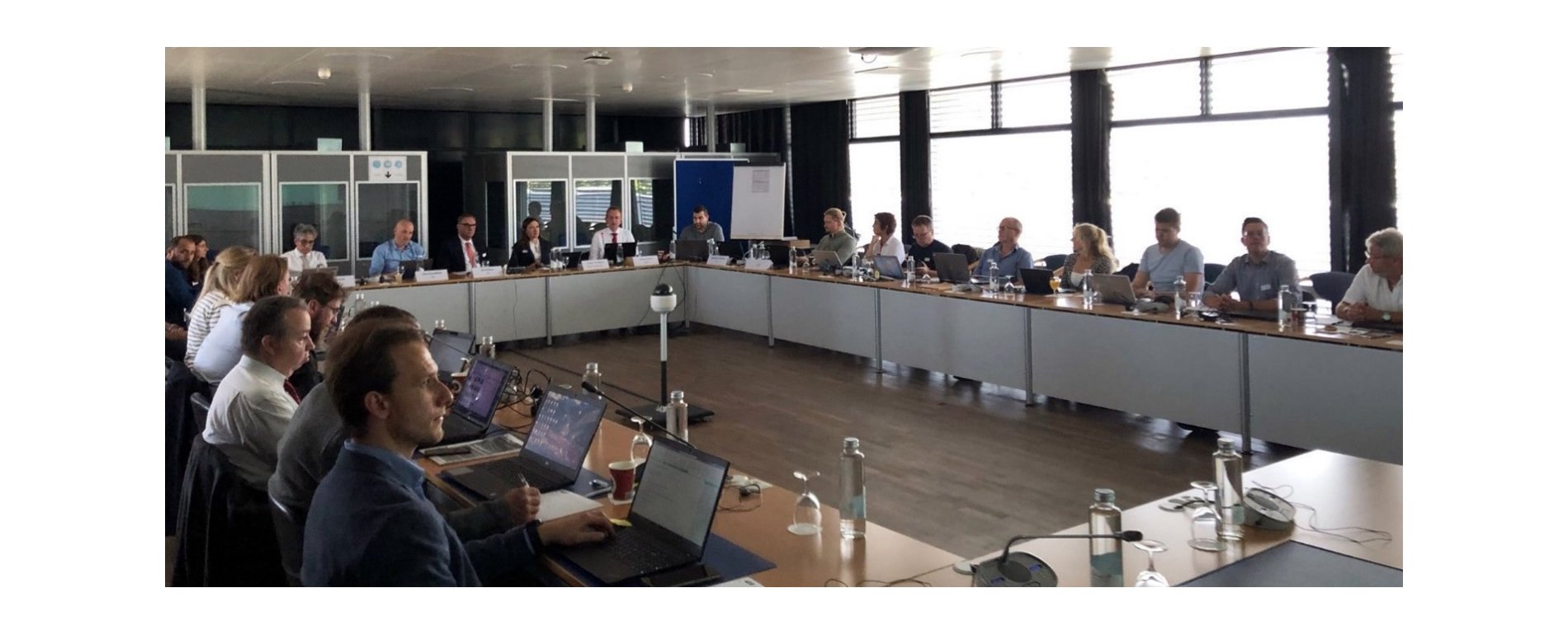3/23
CIT Workshop “Waste Management and challenges for the rail sector”

Since the beginning of 2023, CIT has been involved in issues relating to the cross-border transport of waste and its management in rail transport operations. The ad hoc Waste Expert Group led by CIT in cooperation with UIC (see this article in CIT News 2/2023) is dealing with these issues, and decided at its last meeting on 4 July 2023 that CIT would organise a workshop dedicated to these questions.
The CIT Workshop on Waste Management and the Challenges for the Rail Sector was held in Bern on 12 and 13 October 2023 and was attended by around thirty participants.
The workshop was divided into four thematic panels over two half-days and was chaired by CIT: the first half-day was structured around two panel discussions, the first focusing on governance and regulation, with a presentation by Jochen Conrad from the OTIF Secretariat on the RID Regulation (Appendix C to COTIF) and the carriage of dangerous goods by rail, followed by the UIC representative Joost Overdijikink on the necessary technical harmonisation aspects. The CER representative Ethem Pekin focused on the need for political impetus from the European Union and new regulation on these issues. Finally, the representative of the Secretariat General of the Basel Convention, Tatiana Terekova, spoke about the regulatory side of the Convention from the point of view of transport.
The second panel focused on operational issues and featured a number of representatives of railway companies (DB Cargo, SBB Cargo International, Green Cargo, DB Cargo Scandinavia, SBB Cargo Deutschland) who manage and transport waste by train on a daily basis and who are experiencing problems at different levels - technical, regulatory, and administrative. In practice, the transport of waste is very complex and not adapted to rail.
On the basis of this postulate, during panel 3 CIT presented legal proposals to facilitate the work of railways and the management of waste being transported by rail carriers. The introduction of an optional checklist relating to irregularities in this type of transport could fill in the gaps and shortcomings in the transport documents exchanged between carriers. An info support sheet could also be created summarising all the points to which rail carriers need to pay attention when transporting waste. Finally, adaptations to the CIM consignment note could be developed to meet the needs and particularities of waste transport within this tried-and-tested essential document by digitalising the main functions and including the new international codes for waste carriage by rail though the ORFEUS System 1.6 developed by RailData.
The workshop ended in panel 4 with the opening up of other perspectives in the shape of a presentation by the Swedish waste management authority to better understand the dialogue between an authority and rail carriers and provide a better understanding of the role and way of working of a waste shipments control unit. In addition, the new Austrian regulations presented by Rail Cargo Austria showed that national law can encourage the transport of waste under virtuous regulations that allow more direct and concrete transport. These examples may provide inspiration for the future and the political impetus needed to ensure that European regulations in this area are revised to better meet the needs of the rail sector, which is transporting waste on an increasingly regular basis.
Summing up, the CIT General Secretariat emphasised the development of legal functionalities to help rail carriers by providing greater legal certainty for waste management.
guillaume.murawa(at)cit-rail.org
